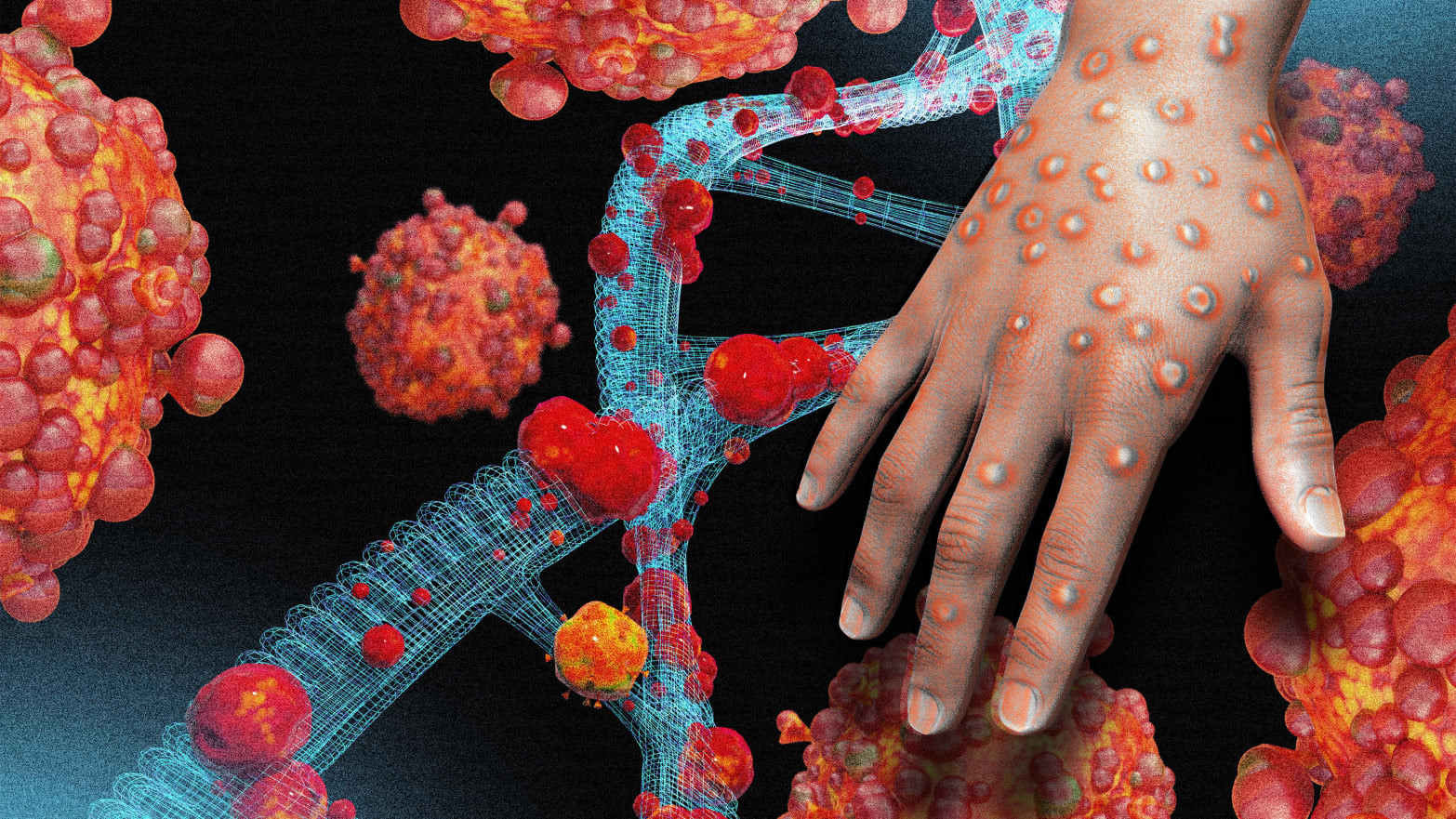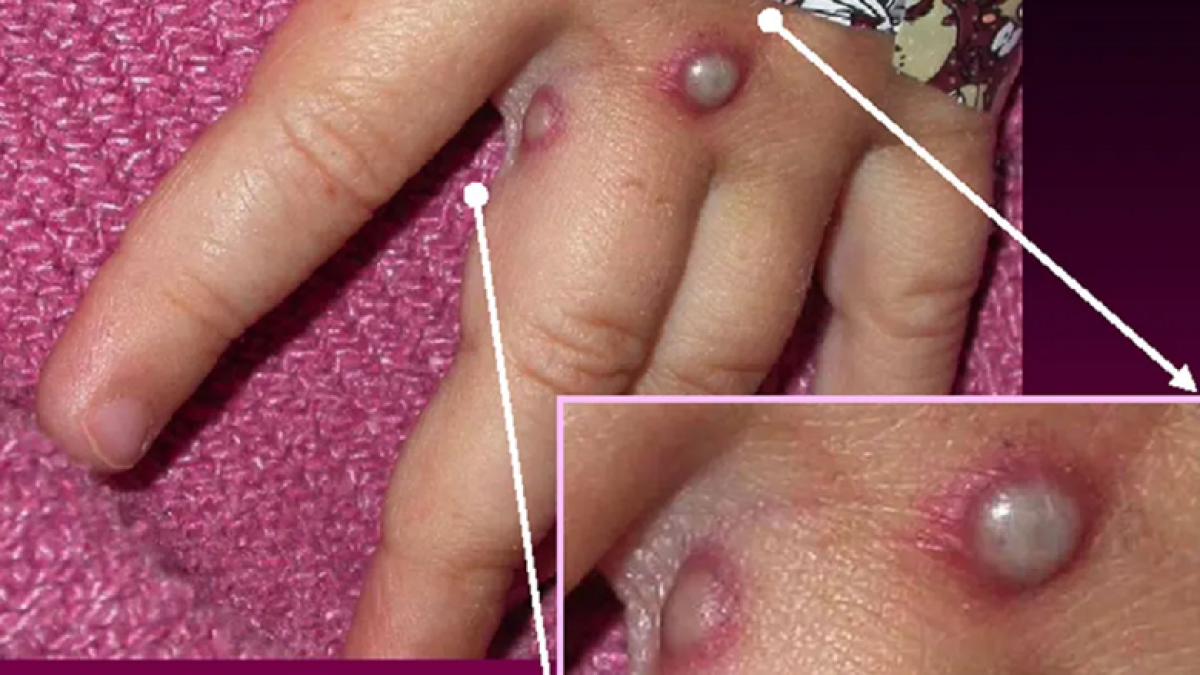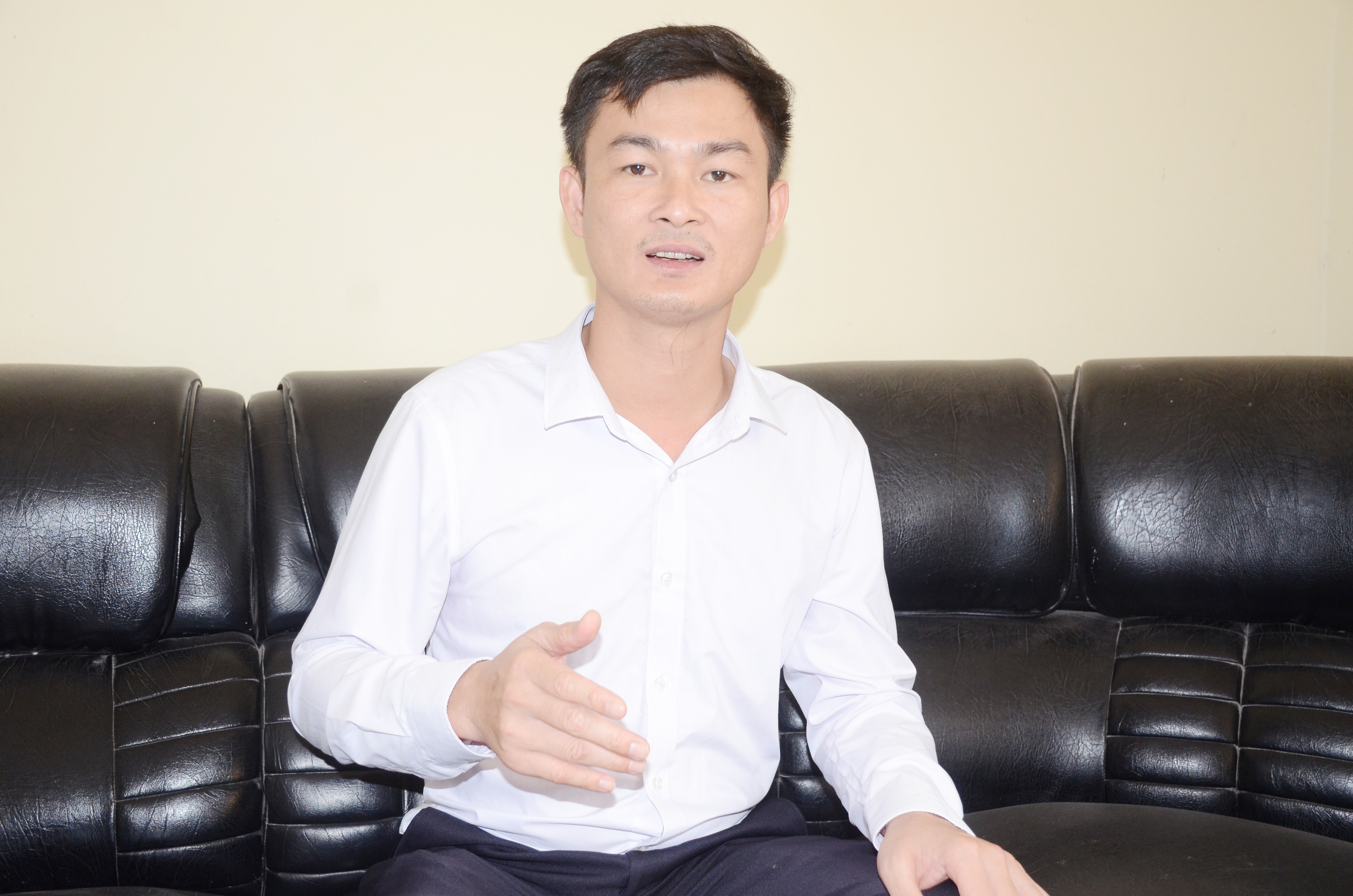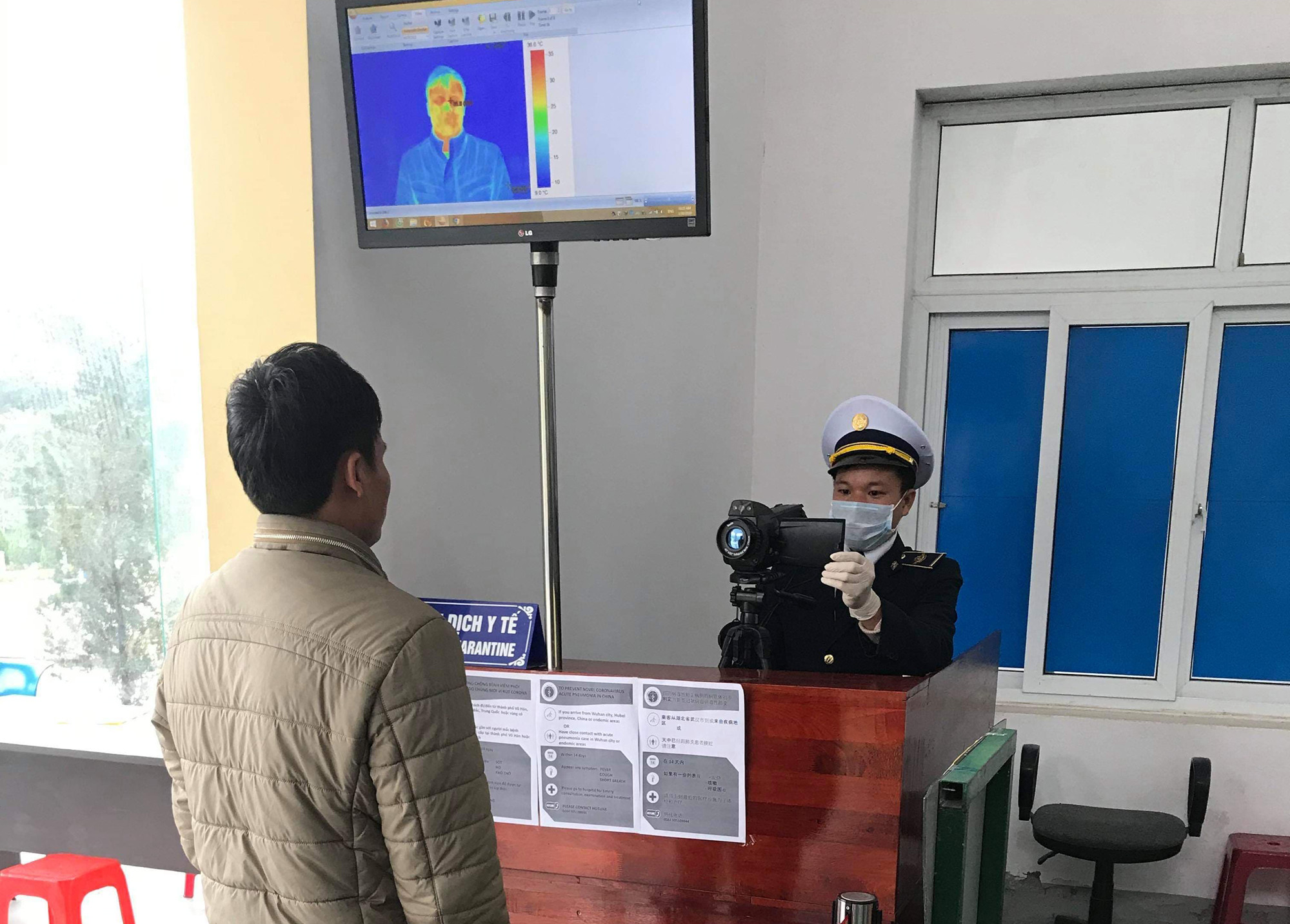Monkeypox and its high risks to people with HIV
(Baonghean.vn) - Monkey pox is a new dangerous infectious disease in Vietnam, and the pathogen has now appeared in the community. People with HIV and men who have sex with men are high-risk groups. Nghe An is a locality with a high risk of disease invasion and infection.
Nghe An Newspaper reporter had an interview with Master, Doctor Nguyen Huy Anh - Deputy Head of the Department of Prevention and Control of Infectious Diseases, Nghe An Center for Disease Control to better understand this disease.
PV:Can you tell me more about monkeypox? What is the status of the disease in the world and in Vietnam?
Master, Doctor Nguyen Huy Anh:Monkeypox (scientific name: mpox) is a disease transmitted from animals to humans and from humans to humans, this is not a new infectious disease. The disease was first discovered in monkeys in a laboratory in Denmark in 1958, so it was named monkeypox. In addition to monkeys, this disease also appears in some other animals, mainly rodents.

In 1978, scientists first discovered monkeypox in humans in the Democratic Republic of Congo. Since then, the disease has become endemic in countries in Central and West Africa. In 2003, the first outbreak of monkeypox outside of Africa occurred in the United States involving prairie dogs, resulting in more than 70 cases, and monkeypox has been reported sporadically since then. According to the US CDC, the case fatality rate for monkeypox is 0-11%.
From 2018-2021, monkeypox cases were recorded in the following countries: the UK, Israel, Singapore, the US... From April 2022 onwards, the monkeypox epidemic developed abnormally; the number of cases, the number of countries and territories with cases increased rapidly. On July 23, 2022, the World Health Organization declared monkeypox an international public health emergency. And to date, the world has recorded more than 91,000 cases in 115 countries and territories with many deaths.
In Vietnam, monkeypox is a new infectious disease. The first case was detected in Ho Chi Minh City in September 2022. The case entered Vietnam from the United Arab Emirates through Tan Son Nhat Airport. In November 2022, the Ministry of Health decided to add monkeypox to the list of group B infectious diseases - including dangerous infectious diseases that can spread quickly and cause death.
According to the Ministry of Health, to date, Vietnam has recorded 57 cases of monkeypox infection (1 death) in 8 provinces and cities. In Vietnam, the pathogen has penetrated the community, so in the coming time, it is likely that Vietnam will continue to record new cases, especially in other major cities outside of Ho Chi Minh City.
PV:Doctor, please tell me about the mechanism of infection and symptoms of monkeypox?
Master, Doctor Nguyen Huy Anh:Regarding the transmission mechanism, monkeypox is a zoonotic disease. Human-to-human transmission occurs through direct or close contact, through open wounds, body fluids, large respiratory droplets; through contact with objects and utensils contaminated with the pathogen. Transmission can occur through the placenta from mother to fetus or through close contact during and after birth.

Signs to identify people with monkeypox are cases of acute rash in the form of vesicles or pustules that cannot be explained by other common rash diseases: Chickenpox, measles, skin infections, gonorrhea, syphilis... These people have one or more symptoms such as fever >38.5 degrees Celsius, headache, swollen lymph nodes, back pain, muscle pain, fatigue and have risk factors within 21 days before the onset of symptoms. Risk factors are contact with a suspected case, infection through direct physical contact of skin to skin or damaged skin (including sexual intercourse) or contact with the patient's belongings; having sex with a sexual partner.
Monkeypox is only severe, and can even be life-threatening, in people with weakened immune systems (AIDS, cirrhosis, diabetes, etc.). Symptoms of severe monkeypox include larger, more widespread skin lesions (especially in the mouth, eyes, and genitals), secondary skin infections leading to sepsis, and severe pneumonia.
PV:According to published studies, people with HIV have an increased risk of monkeypox infection. Can you explain this further?
Master, Doctor Nguyen Huy Anh:Monkeypox can be transmitted through close, frequent skin-to-skin contact with an infected person. Therefore, anyone can get the disease. However, according to statistics from the Ministry of Health, most of the recorded cases are men (92.9%), with a sexual orientation of homosexual and bisexual men (MSM): 78.6%, heterosexual (8.9%); about 63% of the cases are infected with HIV, 46% of the cases have other sexually transmitted diseases.

Statistics show that people with HIV have weaker immune systems and are more susceptible to infectious diseases, including monkeypox, than other groups. People with HIV have many risky behaviors that increase their exposure to pathogens. In addition, men who have sex with men are at higher risk of infection than the general population. This group is also at high risk of HIV infection, so sometimes co-infection with monkeypox and HIV occurs.
Master, Doctor Nguyen Huy Anh - Deputy Head of Department of Prevention and Control of Infectious Diseases, Nghe An Center for Disease Control
People with HIV are more susceptible to monkeypox than other groups because they have a weaker immune system. If an HIV-infected person has close contact with an infected person or an environment that may have been contaminated with the virus, they should closely monitor their signs and symptoms for 21 days after their last exposure. When symptoms of monkeypox are detected, HIV-infected people should contact a medical facility for advice, testing, and care. Until they receive test results, it is best to proactively isolate themselves from others.
People with HIV who are at high risk of infection can be vaccinated against smallpox to minimize the possibility of getting the disease. According to research, the smallpox vaccine can reduce the risk of monkeypox by 85% and reduce the severity of the disease.
PV:Can you tell us about the risk of monkeypox entering and spreading in Nghe An? What solutions is Nghe An implementing to prevent and control monkeypox?
Master, Doctor Nguyen Huy Anh:At this time, Nghe An has not recorded any cases of monkeypox, but it must be said that the province is at high risk of monkeypox infiltration. This risk comes from the following reasons:
Firstly, currently, monkeypox has appeared in the community, the level of trade in the province is very large, so the possibility of cases entering the province from provinces and cities with cases/pathogens that have not been detected is very high.
Second, Nghe An is a province with international border gates by road, water and air, so the province has a high possibility of cases entering the area from countries with outbreaks through border gates.
Third, Nghe An has a large risk group, including people infected with HIV/AIDS and men who have sex with men (estimated at 7,000 people). This is a group of people with behaviors that can easily cause infection.
To proactively prevent and combat monkeypox, right from the beginning of the complicated developments of the epidemic, Nghe An has resolutely implemented measures under the direction of the Government and the Ministry of Health. The province has issued epidemic prevention scenarios at different levels, suitable to the practical situation of the locality; directed the media and medical units to strengthen propaganda work for people about monkeypox; directed the health sector and related units to synchronously deploy measures to monitor and detect cases early.

Measures to monitor and detect cases early include: Issuing procedures and implementing medical quarantine at border gates to prevent infected and suspected cases from entering the province; implementing surveillance at dermatology and gynecology examination and treatment facilities, public and private health facilities providing HIV/AIDS prevention and control services; implementing community-based surveillance. Nghe An's health sector has also conducted professional training on monitoring, detecting, admitting, treating, isolating and handling outbreaks for 100% of district-level health centers and provincial-level treatment units. Currently, the health sector is continuing to update and monitor the situation to adjust the epidemic prevention scenario in accordance with the epidemic developments in Vietnam and the locality.
PV:What solutions should Nghe An people take to proactively prevent monkeypox?
Master, Doctor Nguyen Huy Anh:To proactively prevent and control monkeypox effectively, all people need to proactively implement disease prevention measures according to the recommendations of the Ministry of Health.
Specifically, practice good personal disease prevention behaviors, including: Covering the mouth and nose when coughing or sneezing, preferably with a cloth or handkerchief or disposable tissue, or sleeve to reduce the spread of respiratory secretions; washing hands with soap and clean water or antiseptic solution immediately after coughing or sneezing; Do not spit indiscriminately in public places; regularly wash hands with soap and clean water or antiseptic solution; practice safe sex; do not have sex with multiple partners.
People should avoid close contact with people with monkeypox, avoid direct contact with wounds, body fluids, droplets and objects and utensils contaminated with the pathogen. People with symptoms of acute rash of unknown cause accompanied by one or more suspicious symptoms should proactively contact a medical facility for timely monitoring and consultation. At the same time, people with symptoms should proactively self-isolate and avoid sexual intercourse.
When people discover someone infected or suspected of being infected, they should inform the nearest medical facility for timely examination, treatment, consultation and disease prevention instructions. In addition, people need to ensure food safety; practice a healthy lifestyle, increase physical activity, and improve health.
People traveling to countries where monkeypox is endemic (Central and West Africa) should avoid contact with mammals (dead or alive) such as rodents, marsupials, primates that may contain monkeypox virus... When returning to Vietnam, they should proactively declare to local health authorities for advice.
PV:Thank you doctor!
